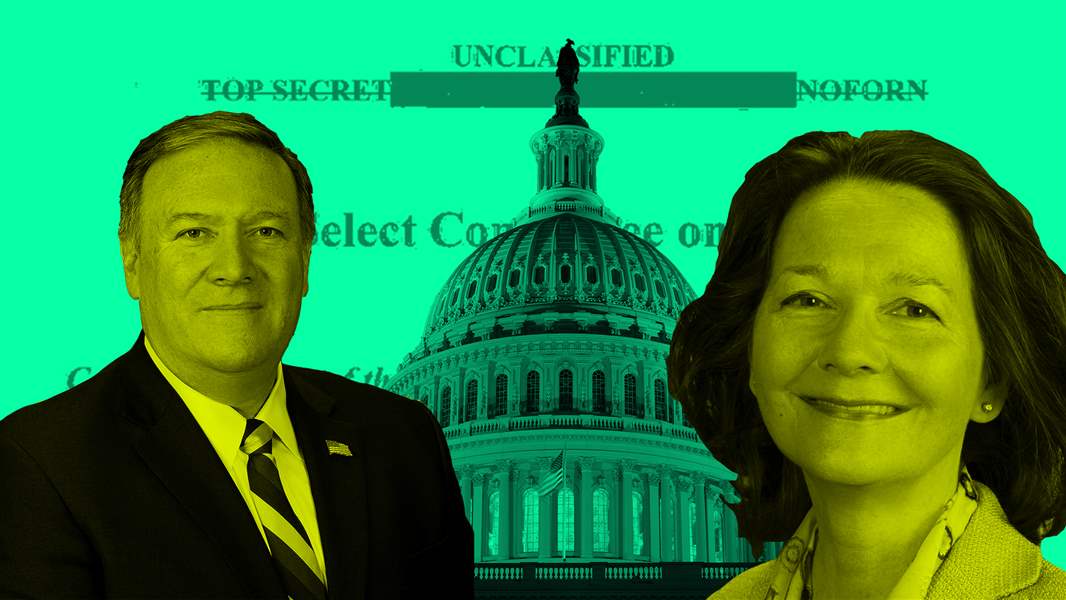
Pompeo, Haspel face contentious confirmation hearings
3/16/2018
THE BLADE/WILL TOMER
Buy This Image

Will Tomer
Rex Tillerson, to the surprise of almost no one, was fired from his position as Secretary of State last week. Much of the coverage surrounding Mr. Tillerson’s firing has, understandably, focused on Mr. Trump’s motivation for doing so, many news outlets have not paid a great deal of attention thus far to Mr. Tillerson’s replacement, CIA Director Mike Pompeo, or Mr. Pompeo’s replacement at the CIA, Gina Haspel.
Mr. Pompeo and Ms. Haspel are, on the surface, qualified for their respective positions.
Read last week’s column from Will Tomer
Mr. Pompeo served in the U.S. Army for six years and during the Gulf War. He received a law degree from Harvard Law School, and then worked in the private sector for a time before serving in the U.S. House of Representatives from 2011 to 2017, representing Kansas’ 4th District. In 2017, he was appointed CIA Director by Mr. Trump.
Ms. Haspel is a career officer of the CIA. She joined the agency in 1985 and climbed the ranks. In 2017, Mr. Trump appointed her as deputy director of the CIA and now, with Mr. Pompeo’s transition to the State Department, Ms. Haspel is poised to become the first female director of the CIA.
But when they find themselves before the U.S. Senate for their respective confirmation hearings, Mr. Pompeo and Ms. Haspel are likely to encounter difficult questions about their records on civil liberties, due process, and the use of torture.
Here are some of the specific issues likely to arise.
In 2013, while serving in the House of Representatives, Mr. Pompeo alleged that any Muslim leader who did not denounce acts of terrorism done in the name of Islam could be “potentially complicit” in the attacks.
That same year, Mr. Pompeo denied that the prisoners at Guantanamo Bay — a military prison with a well documented history of human rights abuses — were being mistreated. Commenting on a prisoner hunger strike being held at Guantanamo at the time, Mr. Pompeo said, “They look to me like a lot of them have put on weight.”
Mr. Pompeo criticized former President Barack Obama for closing down the CIA’s so-called “black site” prisons — secret prisons the U.S. has maintained around the globe for the purpose of interrogating and torturing detainees. Mr. Pompeo alleged that, because Mr. Obama ordered interrogators to refrain from torturing detainees, then-President Obama was refusing “to take the war on radical Islamic terrorism seriously.”
Mr. Pompeo has defended the NSA’s program of warrantless surveillance on American citizens, describing it as “important work.” In a 2016 op-ed for the Wall Street Journal, he called for the unobstructed, warrantless surveillance of Americans.
“Congress should pass a law re-establishing collection of all metadata, and combining it with publicly available financial and lifestyle information into a comprehensive, searchable database,” he wrote, along with legal political analyst David B. Rivkin Jr. “Legal and bureaucratic impediments to surveillance should be removed.”
Despite her comparatively low-profile status in the CIA, Ms. Haspel has also been the subject of several public controversies over the years.
In 2013, the Washington Post reported that Ms. Haspel played a vital role in covering up the torture of Abu Zubaydah. According to the report, Ms. Haspel ordered the destruction of videotapes of Zubaydah’s interrogations, in violation of a federal court order. There was a criminal investigation, but no charges were filed.
In 2017, a widely cited report from ProPublica stated that Ms. Haspel ran a CIA black site prison in Thailand in 2002, which has been described as a “torture laboratory.”
On Thursday, however, ProPublica issued a retraction for that information. But the retraction does not remove crucial questions or lingering concerns about Ms. Haspel’s involvement in the United States’ torture program, because it does no more than limit the alleged scope of her involvement in the torture of detainees by specifying that “Haspel did not take charge of the base until after the interrogation of Zubaydah ended.”
At the time of the Washington Post’s report, Ms. Haspel was being considered as a candidate for the Director of the National Clandestine Services, a department within the CIA. Her name was not made public at the time, because she was considered to be a covert agent. She briefly served as acting director of Clandestine Services, but the Obama administration denied her the permanent posting due to her controversial record on torture.
In nominating Mr. Pompeo and Ms. Haspel, Mr. Trump is proposing to accord each of them a great deal of power. Mr. Trump has flirted with the notion of reopening CIA black site prisons and reauthorizing torture as an interrogation technique. In Mr. Pompeo and Ms. Haspel, he is likely find supporters for these ideas.
When the senators on the committees vetting these nominations question Mr. Pompeo and Ms. Haspel, they should ask pointed questions about both nominees’ records where matters of civil liberties and due process are concerned. During his 2017 confirmation hearing for the role of CIA director, Mr. Pompeo was only briefly asked about his comments on torture and government surveillance. The hearings to determine whether he will be confirmed as Secretary of State should delve deeper into those comments and the views they reflect.
Similarly, Ms. Haspel ought to be questioned, closely and sharply, about her positions, now and in the past, about the use of torture and the rights of persons detained by the U.S. government as part of the War on Terror.
Simply put, the Senate should insist that Mr. Pompeo and Ms. Haspel guarantee to observe the rule of law and protect the civil liberties of both friend and foe.
If the American people are to trust Mr. Pompeo or Ms. Haspel in their new roles, it is essential that we understand who they are and the standards of conduct that they espouse.
Contact Will Tomer at wtomer@theblade.com, 419-724-6404, or on Twitter @WillTomer.